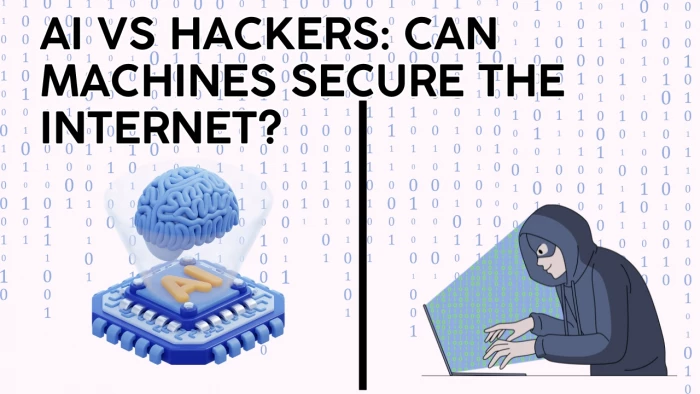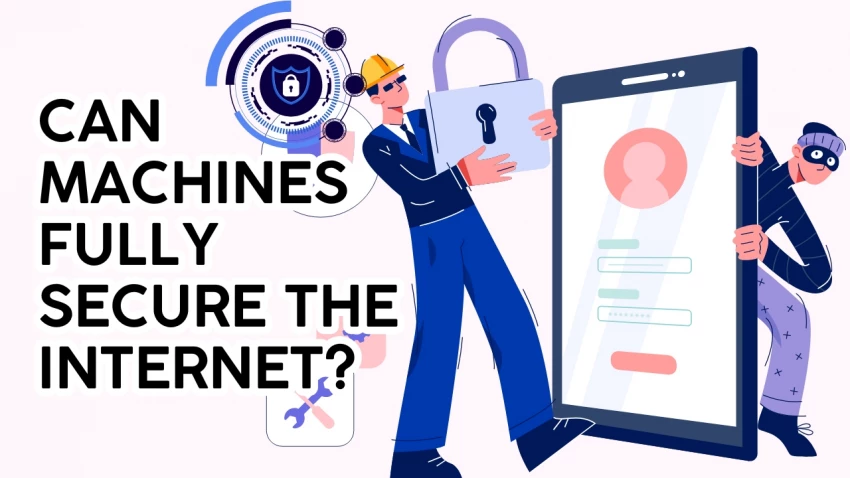

The internet is the backbone of modern life. From banking and healthcare to entertainment and communication, we rely on it daily. But with convenience comes vulnerability. Cyberattacks are increasing in frequency and sophistication, raising one urgent question: Can artificial intelligence (AI) secure the internet against hackers?
Hackers thrive on exploiting weaknesses. In 2024, cybercrime is projected to cost the world $9.5 trillion annually (Cybersecurity Ventures). Traditional defenses—firewalls, antivirus software, and manual monitoring—struggle against zero-day exploits and advanced persistent threats (APTs). Hackers innovate quickly, often outpacing human defenders.
This imbalance raises a critical concern: how can defenders keep up when attackers only need to find one vulnerability to win?
AI offers a game-changing advantage—speed and scale. Unlike humans, AI systems can monitor billions of network events in real-time, spotting anomalies invisible to traditional tools. Machine learning models can:
Companies like Darktrace and CrowdStrike already deploy AI-driven security tools that use unsupervised learning to detect anomalies. These tools can flag unusual behavior within milliseconds, giving defenders precious time.
AI’s potential goes far beyond detection—it is reshaping the entire cybersecurity landscape. Key strengths include:
These capabilities show why AI is becoming the backbone of modern cyber defense strategies.
But here’s the catch: hackers also use AI. Generative AI can automate phishing campaigns, create deepfake scams, or even probe networks for weaknesses more efficiently than humans. For example, researchers demonstrated that AI can craft 99% more convincing phishing emails than humans (IBM Security, 2023).
This creates an arms race. Every defensive innovation is met with an offensive counterpart. Can defenders maintain the upper hand?
Despite AI’s power, human hackers still hold unique advantages:
These strengths highlight why humans remain central to cybersecurity—on both sides of the battlefield.

The battle between AI and human hackers is not one-sided. Each has unique strengths and vulnerabilities:
Ultimately, the strongest defense emerges when AI and humans work together—leveraging AI’s automation with human judgment.
Several applications show how AI is reshaping cybersecurity:
These systems demonstrate that AI is not just reactive but proactive.
This is the million-dollar question. While AI drastically improves defenses, a fully secure internet may be impossible. Cybersecurity is not only a technological battle but also a human one. Many breaches occur due to human error, such as weak passwords or clicking on malicious links. No AI can fully eliminate that risk.
Moreover, ethical challenges loom. Who controls the AI that guards the internet? What happens if it makes a mistake? And how do we balance privacy with constant monitoring?
The future isn’t about AI replacing humans—it’s about collaboration. AI excels at speed, scale, and pattern recognition. Humans bring context, creativity, and ethical judgment. Together, they can build a resilient defense.
Governments and companies must also invest in AI-driven cyber defense at scale. According to Gartner, global spending on cybersecurity is expected to reach $215 billion by 2024, with AI playing a central role. Yet, without skilled cybersecurity professionals to guide these systems, their effectiveness diminishes.
Hackers aren’t going anywhere. In fact, with AI in their toolkit, they’re only getting smarter. But defenders have the same technology—and when deployed responsibly, AI could be the equalizer we’ve been waiting for.
So, can machines secure the internet? Not alone. But with humans at the helm, AI could tilt the balance in favor of defenders, making cyberspace safer for everyone.
Be the first to post comment!